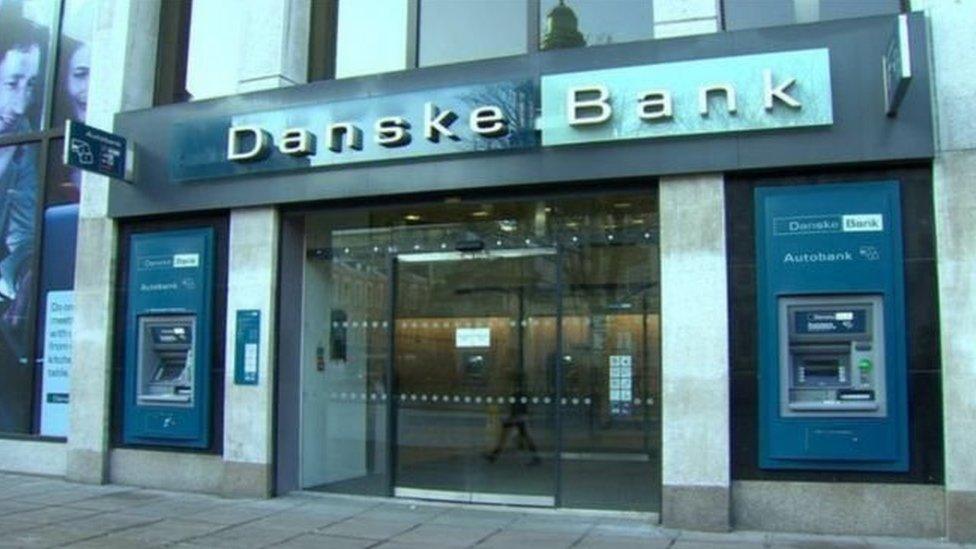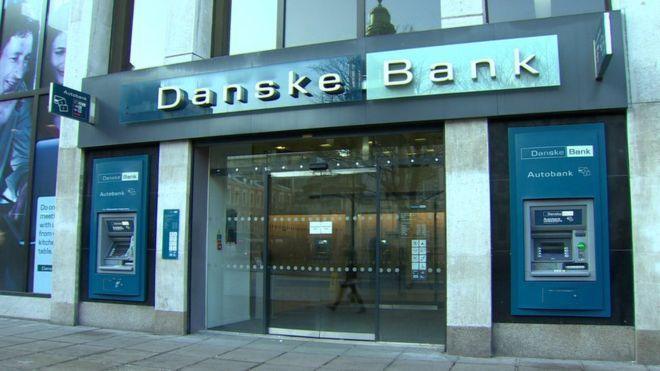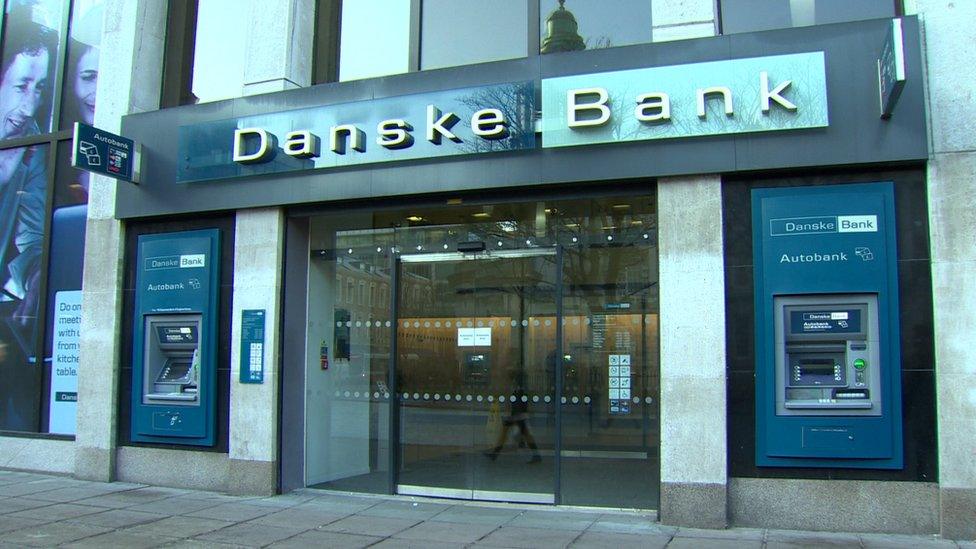Danske Bank Northern Ireland profit falls by 94% as deposits surge
- Published

The performance of Danske Bank has been heavily impacted by loan loss provisions related to coronavirus.
Danske Bank in Northern Ireland saw its pre-tax profit fall by 94% in the first half of 2020 due to the impact of the pandemic.
It made a profit of £2.9m compared to £45.9m during the same period in 2019.
The steep fall was due to a loan loss provision of almost £30m related to coronavirus.
This is money the bank must set aside to cover loans that it thinks are unlikely to be repaid in full.
The bank's profit before impairments was down from £47.8m to £32.7m.
Danske also saw a surge in deposits from customers during the first half of the year.
They increased by over £1bn from £7.2bn last year to £8.6bn this year, most of that coming in the last three months.
Driven by 'precautionary savings'
Growing customer deposits have been seen across the banking sector.
According to Bank of England data, deposits into accounts by households increased by a record £25.6bn in May, following strong increases in March (£14.3bn) and April (£16.7bn).
This is likely being driven by "precautionary" and "forced" savings.
Precautionary savings reflects fearful people and businesses preparing for worse times ahead.
Forced savings reflects the fact that better-off households were unable to do their normal discretionary spending on things like eating out, live entertainment and travel.
Danske Bank UK chief executive Kevin Kingston said what happened to that increased saving would be key to any recovery.
"If we are to get the Northern Ireland economy moving again, a lot will depend on how much of this pent up economic capacity turns into consumer spending and business investment."
- Published30 April 2020

- Published5 February 2020
